Cosatu’s ‘successful’ Workers’ Day rally
Kicking the president out of the federation’s main rally shows how tired workers are of the government protecting the private sector while claiming to be on the side of the working class.
Author:
5 May 2022

It was Juluka “Juju” Nombanga’s apoplectic fellow mineworkers who invigorated the aura of the Congress of South African Trade Unions’ (Cosatu) poorly attended Workers’ Day commemoration rally at the Royal Bafokeng Stadium near Rustenburg in North West province.
The mineworkers under the National Union of Mineworkers (NUM) and the Association of Mineworkers and Construction Union came to the stadium singing and holding protest placards. Their anger has been brewing for months. They have been on a no-work, no-pay strike at the Sibanye-Stillwater gold mine since early March, after the mine failed to meet their wage increase demand of R1 000 a month.
The workers are struggling to come to terms with chief executive Neal Froneman having pocketed about R300 million last year. Froneman received a basic salary of R12.42 million over the 12 months, plus a cash bonus of R7.8 million and R264 million in conditional share profits.
“It wasn’t our plan to cause chaos. As workers from Sibanye-Stillwater, we are only hoping that President Cyril Ramaphosa will listen to our demand for a R1 000 wage increase,” said Nombanga, 45, one of the organisers of the striking mineworkers. “He should go and sit down to discuss with the chief executive to add money for us.”
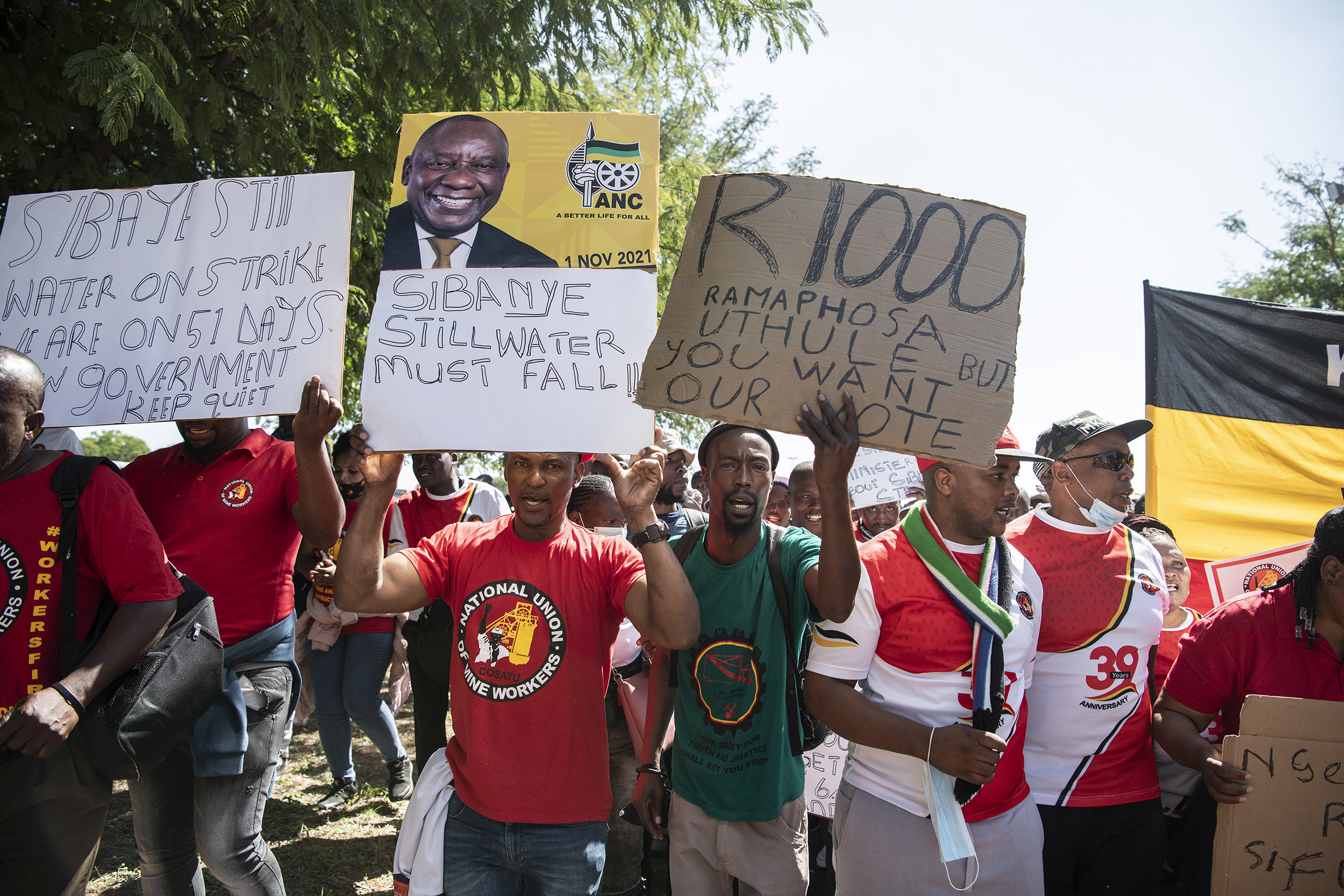

Nombanga started working for Sibanye-Stillwater in 2009 and is now the NUM’s chairperson at shaft seven. “My job is to dig gold. The problem is that I am only paid to go underground to dig the rocks. It is very difficult to do this kind of work,” Nombanga said, yet he doesn’t have much to show for it – the big money and wealth goes to the company and its executives. He added that the miners are struggling to keep up with the skyrocketing and unaffordable cost of living.
Cosatu’s national delegates realised early on that chaos was imminent if the striking workers were denied an opportunity to air their demands. They insisted that Ramaphosa address the mineworkers directly. Although he was reluctant to humble himself, the president finally acceded to their pressure. Some of the heavily guarded, chanting mineworkers labelled Ramaphosa a “sellout”.
“I will make sure to tell Froneman that you guys want R1 000,” said an irked Ramaphosa, struggling to convince the workers who were booing him. “Andizakuyivuma lendlela enithetha ngayo (I won’t accept the manner in which you talk to me),” he said, trying to reprimand them. “Aningimameli mangithetha (You do not listen to me when I speak).”
The security forces were at the stadium to contain the workers, who are displeased about the government’s quietness regarding their plight. Angry public-sector workers stormed into the stadium and chased Ramaphosa out of the rally. He was escorted by a police nyala.
Government’s double standards
Cosatu president Zingiswa Losi was the only speaker allowed to deliver her keynote speech, which reflected on the milestones of the federation. One of its successes, Losi said, was getting the government to adopt the International Labour Organisation’s Convention 190, which seeks to eliminate violence and sexual harassment of women in the workplace. This convention moved a step forward to accommodate workers in the LGBTQIA+ community.
The second victory, she said, was the national minimum wage, which has increased to R23.19 per hour. This is the biggest victory, because it “pertains to the most vulnerable sectors of our economy, the domestic workers, farm workers and security guards,” she said. The third victory worthy of celebration relates to the six-month maternity leave.
“Even if you gave birth to a stillborn child, you are still entitled to take your maternity leave. This is a huge victory because at first no one had acknowledged that you are a mother. Because the baby is not alive, you [were] expected to go to work,” she explained, adding that even for those who can’t give birth, “an adoption leave is now an entitlement for those who cannot bear their own children in the natural way.”
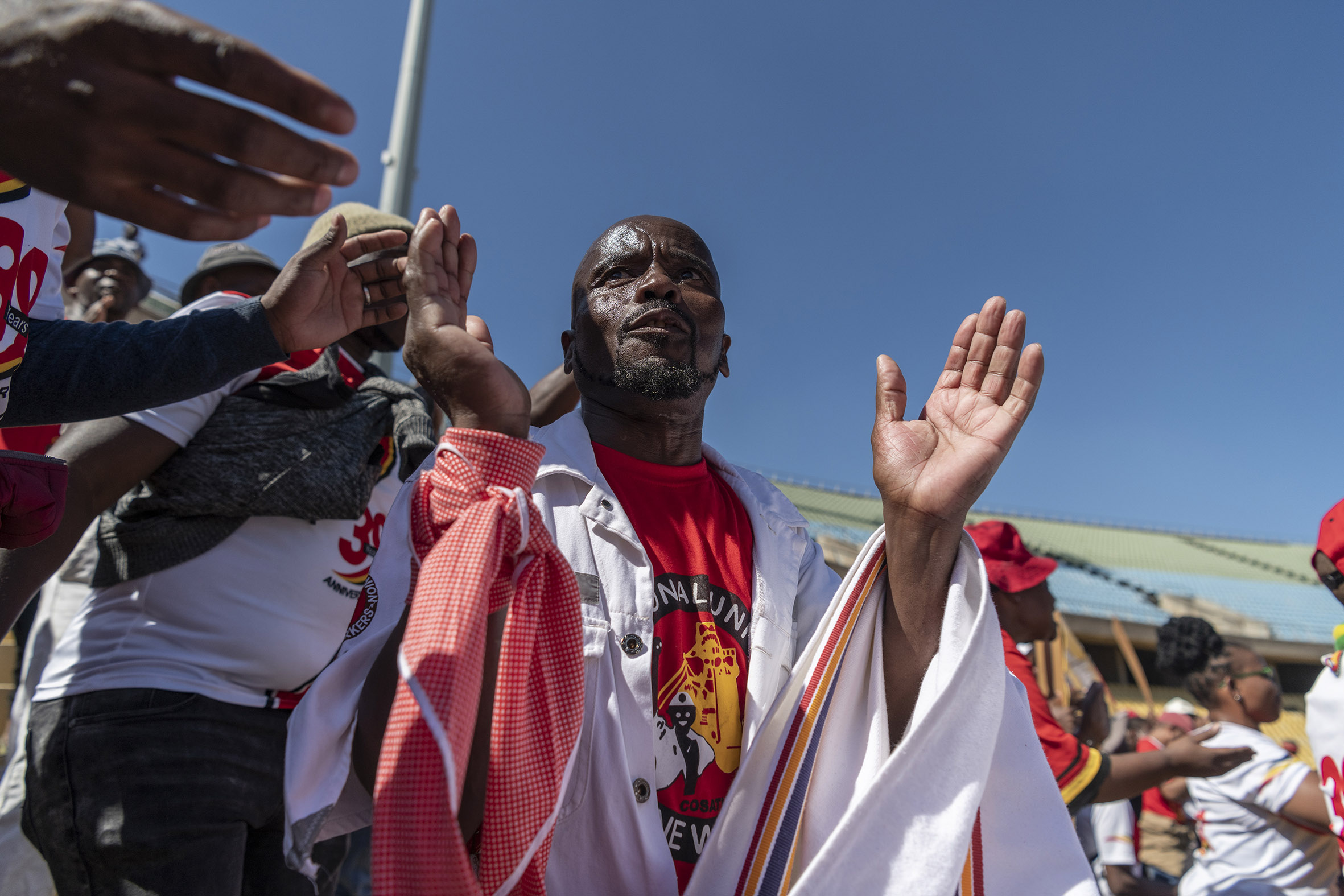

But the spotlight on Cosatu’s Workers’ Day rally was on why Ramaphosa was chased out of the stadium and barred from speaking. Workers have had enough of the double standards of the government, which claims to be pro impoverished and working-class people. It entered into a three-year wage agreement with the public-sector unions in 2018. Losi said the workers were “forced” by the government into this agreement, only to find that on the last leg the government failed to honour the last leg of the Resolution 1 of 2018. When the federation pushed for the government to commit, it went to court.
The court ruled that the 2018 agreement was unlawful and unenforceable because the National Treasury rejected the agreement at its inception. The federation was aggrieved because the Constitutional Court focused on the internal mandating processes of the government and failed to acknowledge that Cabinet gave the Department of Public Service and Administration the go-ahead to enter into an agreement with unions. The judgment also imposed the treasury on the collective bargaining process and gave it veto powers that allowed it “to act as a super ministry”, according to a press release by Cosatu on 1 March.
“The message to workers from this court ruling is that this administration has long ago walked out on workers and unions. The social compact that is being proposed is demanding that workers stop demanding wage increases and that the current labour law regime be weakened,” said Cosatu.
“It is now obvious that this government will not save workers, it has sold them out to the billionaire class, and workers will only save themselves. The only way left to change the balance of power and force concessions from the ruling capitalist class is for workers to exert their power by mobilising and fighting. This is a class war.”
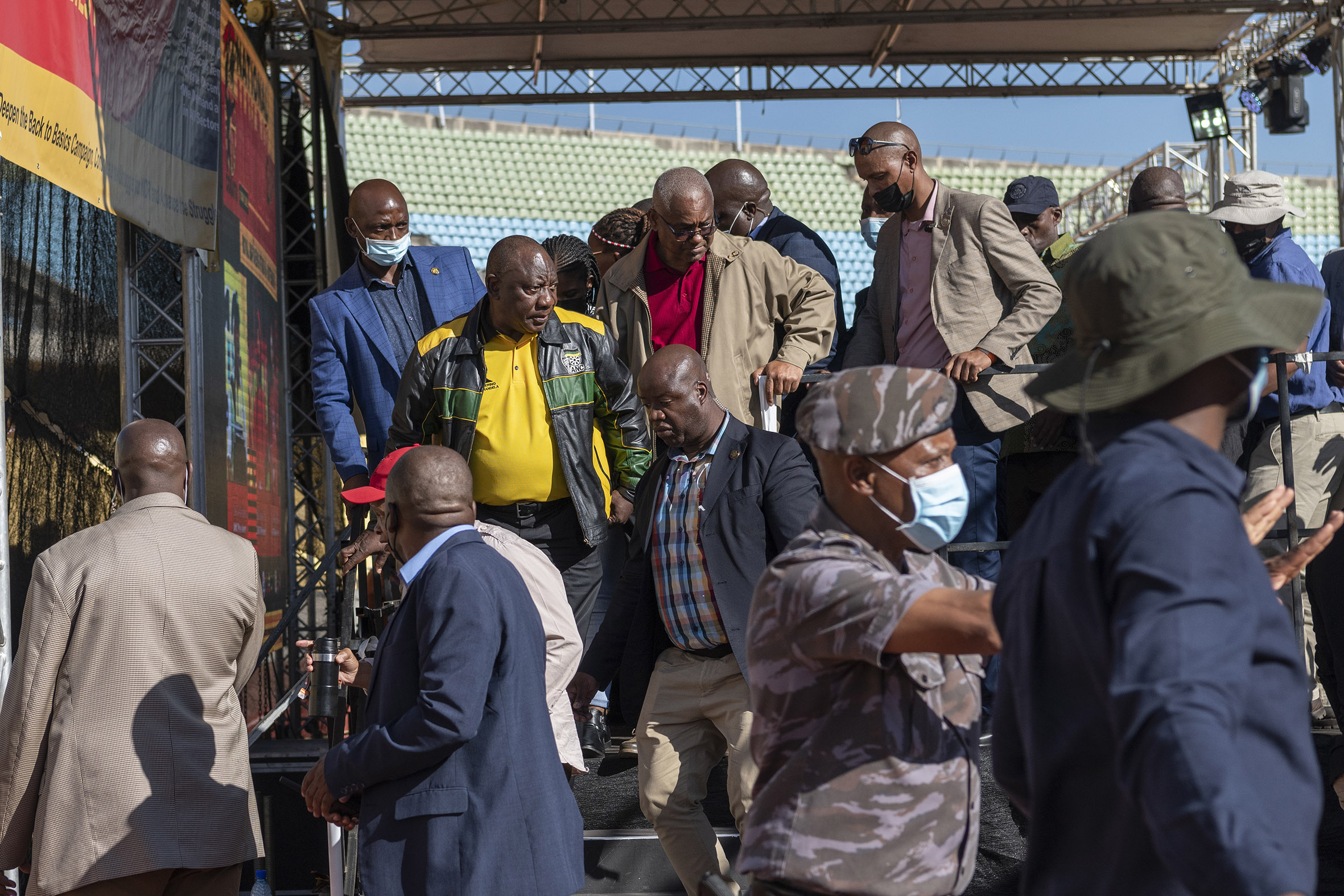

‘Now the ANC understands’
“This is still a sore issue to workers, and it will continue to be until it is addressed properly. That is why I was saying running to court is not a solution,” Losi said. “We’ve always told the ANC government that what they are doing is going to be setting a wrong precedent. What the government did was an attack on the collective bargaining council.”
The government’s failure to honour its three-year wage agreement, Losi said, has empowered companies such as Sibanye-Stillwater to come up with an avalanche of excuses and to follow suit.
Considering how events played out at the rally, was Cosatu’s May Day rally a success? The short answer, Losi said, is yes.
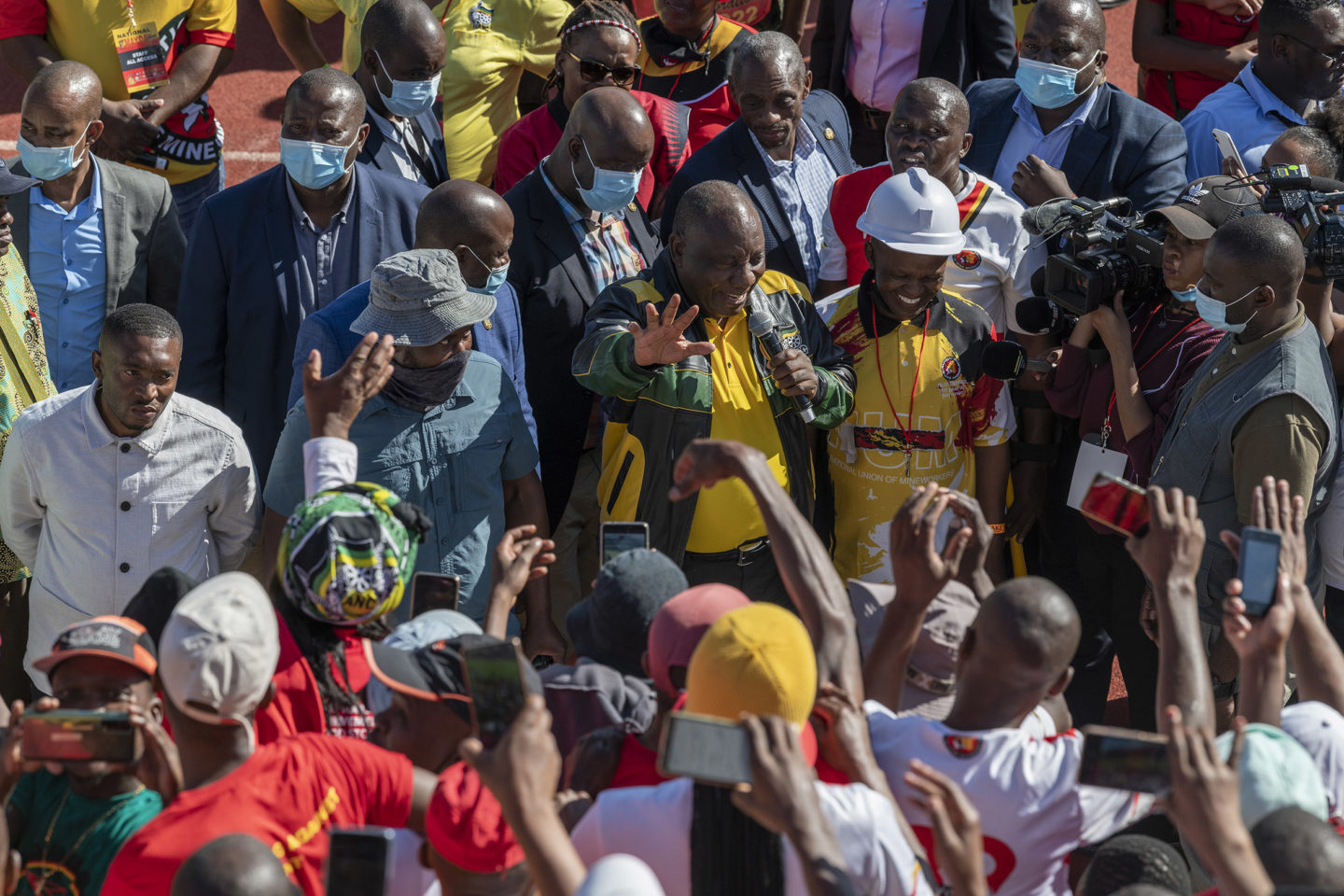

About eight Cosatu rallies took place across the country. “But with this one, I’d say it was a success in the sense that a success of a May Day is not about how well you have delivered your speech,” she said, but is premised first on Sibanye-Stillwater mineworkers being able to air their grievances.
Ramaphosa being booed out of the rally is the second success. “I guess as much as we do not condone their actions that ended up disrupting the May Day speakers, but we cannot condemn at the same time for them to ventilate their anger. Now the ANC understands exactly how workers feel,” Losi said. “We’ve been consistent in raising this matter. But leaders chose to ignore us. It was a success because leaders felt the pain that workers are feeling.”
National Cosatu spokesperson Sizwe Pamla echoed her sentiments. “The reality is that this administration is populated by former trade unionists,” he said. “To a certain extent what irritates workers the most is that they turned their backs on them as they ascended the ladders of power. Yet it is workers who have given them the support.”
No messiahs
Pamla said the reaction and anger of the workers towards Ramaphosa was inevitable. “I would be shocked that someone is shocked, because if you look at the real budget document, the government [has decided to] cut corporate tax from 28% to 27% and in another paragraph, the budget announced that 6 000 workers at the post office will be dismissed,” he said.
The budget speech leaves workers with one interpretation. “If you read what that means,” Pamla added, “it means that the government is putting money in the pockets of the private sector and they’re sending workers home to struggle and to suffer. This is a government that could have easily taken that money to bail out the post office and save jobs.”
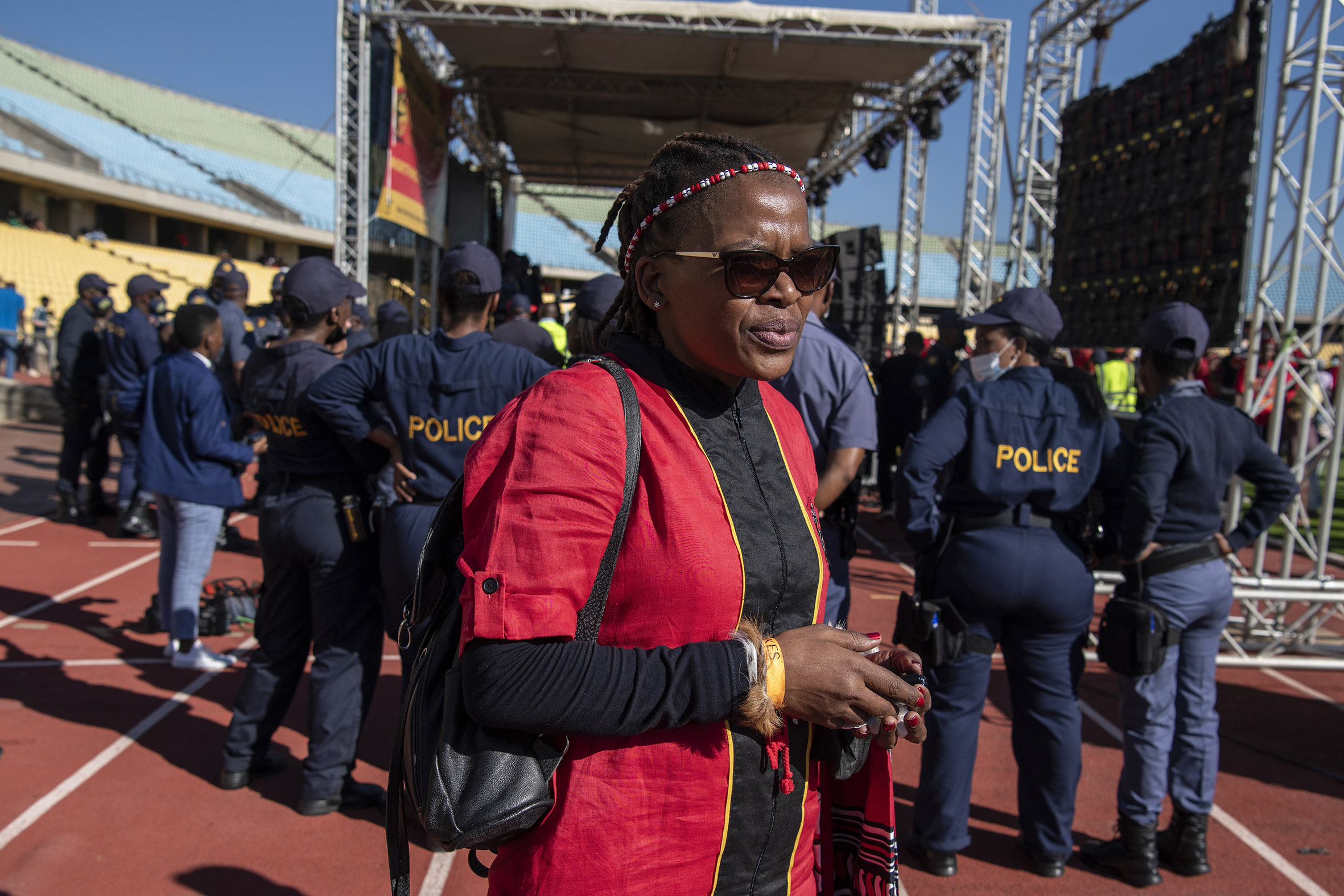

The humiliation that the ANC and the South African Communist Party – who happen to have lapsed on paying their workers in the not-too-distant past – should not be considered an anomaly. Instead, the workers are simply holding their leaders accountable.
“Cosatu workers generally, they are clear when it comes to leadership,” Pamla said. He warned that leaders must be prepared to dance to the music when they betray the interests of workers. “There are no messiahs in the labour movement,” Pamla said. “Workers hold their leaders accountable. Sometimes they fire them and sometimes they hold them accountable to public forums, like they did with Cyril Ramaphosa.”
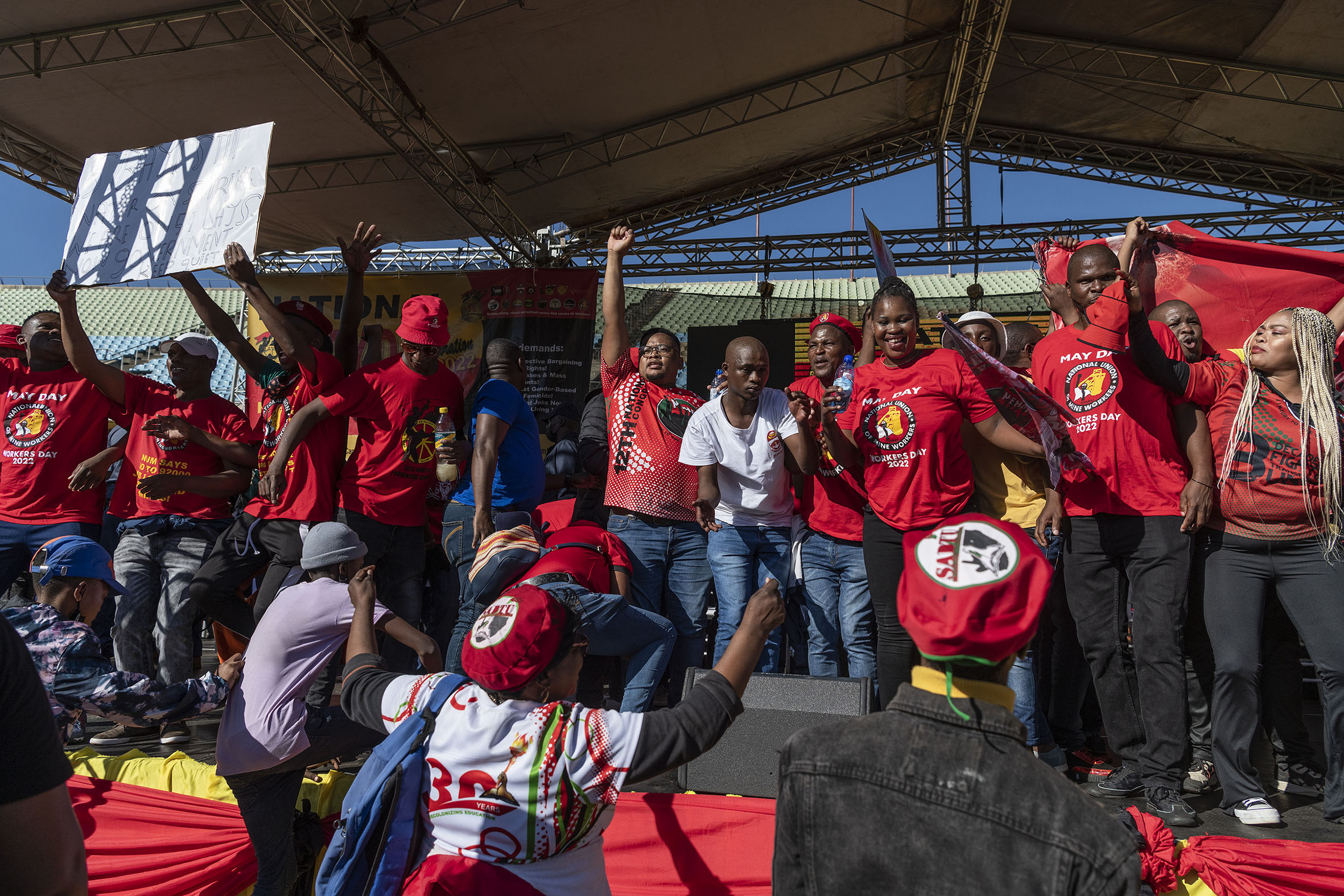

Correction, 6 May 2022: This article previously stated that the strike took place in early February instead of early March.
